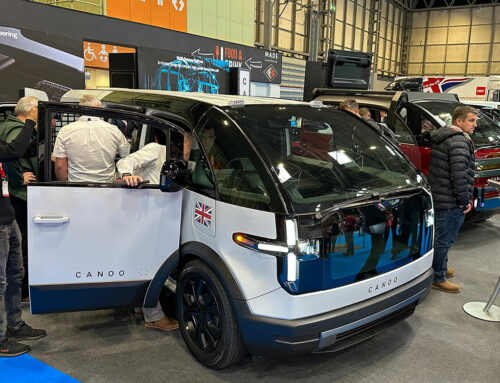SALES of LCVs dropped 16.1% in August to 19,407 vans and pickups, but it is not all doom and gloom.
Behind the figures are the fact that August is a traditionally a slow sales month ahead of the September plate change as we ll as being affected by summer holidays. But the future looks brighter according to Russell Adams, commercial vehicle manager at Lex Autolease.
He believes the recent lockdown has given us a glimpse of what a greener future could look like.
Adams said: “With plans for Clean Air Zones in cities across the UK firmly on the table, demand among businesses for their fleets to have the newest and cleanest vehicles is continuing to rise. We’re working closely with our customers to help them identify where electric vans can be most sensibly and easily introduced into their business.
“The key is to identify the tipping point between new models entering the market, advances in battery technology and charging infrastructure versus the practical demands of their day-to-day operations.
“For vans weighing 3.5t and above, the cleanest diesel technology is still the most practical option, whereas, in the lighter ranges, the transition to electric can be more favourable. The most challenging aspect has been waiting for the right vehicles to become available on the market.
“As we start to see more and more OEMs introduce new models, I believe van operators are becoming more engaged to make the switch from ICE vehicles to electric.
“Ultimately, a van is a tool to do a job and, in these times more than ever, operators need their vans to be out on the roads making money, while keeping costs to a minimum. But, deployed correctly, an alternatively-fuelled LCV can deliver cost savings and increased reliability.
“As the country heads towards a net-zero emissions future, early adopters of the technology can get ahead of the curve and maximise the cost and environmental benefits.”
Declines were recorded in all classes of vehicles, notably vans weighing more than 2.5 to 3.5 tonnes (-18.2%) and vans weighing less than or equal to 2.0 tonnes (-35.0%).
Even so, the market was more robust than originally predicted, but LCV registrations are still down by -36.4% year to date.
Mike Hawes, SMMT Chief Executive, said, “August is traditionally a quiet month as fleets wait for the new September plate, so even small volume declines can look big in percentage terms.
“However, with this sector particularly sensitive to the economic outlook, which remains uncertain, we urgently need measures to restore operator confidence to invest and renew their fleets – vital for achieving the government’s environmental and air quality goals.”
Sue Robinson, Director of the National Franchised Dealers Association (NFDA), said that daily rental companies have reported an uplift in demand for their vehicles.
She added: “These vans are often being used for ‘last mile’ online deliveries, and therefore retained by customers for longer than usual. This has had a detrimental effect on sales as well as on the much-needed used LCV stock for dealers.
“Although most businesses have reopened since the lockdown, there remains uncertainty in a number of sectors where businesses are holding back as they are not feeling confident to invest in new commercials.
“Additionally, since many factories have only just restarted to manufacture commercial vehicles, customers who are not ordering standard specifications may face longer waiting times.
“Going forward, dealers are optimistic that the LCV market will recover, and business confidence as well as supply issues will improve”.







Leave A Comment